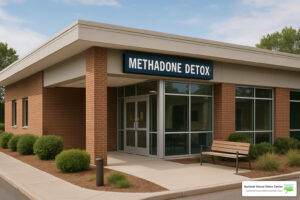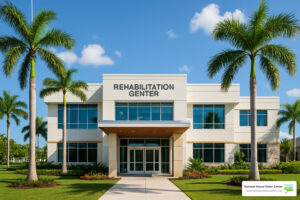
Gabapentin and Opiate Withdrawal—What You Need to Know Before You Detox
Learn does gabapentin help with opiate withdrawal symptoms, its benefits, risks, and usage tips before starting your detox journey.

September 28, 2020
Addiction can impact anyone’s lives — no matter your age. Senior citizens are not immune to drug and alcohol addiction. In fact, drug and alcohol use among the elderly is steadily on the rise in the United States, with an estimated 5.7 million older adults in the country living with substance use disorder (SUD).
SUD, which includes alcohol and drugs, is a growing public health concern. As the number of older adults in the country surges (due to the Baby Boomer generation), so too will the number of elderly individuals with substance abuse issues such as alcohol and drug abuse.
Substance abuse has a terrible impact on almost every aspect of a person’s life, including relationships, health, and emotional well-being. This can lead to other serious health conditions and concerns and worsen existing medical conditions. Given that older adults are more likely to have health conditions and take prescription medications, this is particularly concerning.
Millions of older adults living with substance use disorder may face the consequences of abusing alcohol or drug use if left untreated. With drug and alcohol abuse comes mental and physical health deterioration, along with social and family problems, legal issues, and potential death from overdose.
The reasons why older individuals use drugs and alcohol are as varied and unique as the individuals who use them. However, there are some common reasons why they might turn to substances such as drugs and alcohol, including:
Alcohol abuse is also common in seniors. The National Institute on Alcohol Abuse and Alcoholism (NIAAA) has estimated that approximately 17 million American adults have alcoholism or alcohol abuse/dependency. For seniors, alcohol is the most widely abused substance, and alcohol detox and rehab is imperative for recovery and healing.
Getting older causes changes in the body that can make someone respond differently to medications and alcohol. For example, the “two glasses of wine” you may have enjoyed each evening after dinner can affect you differently as you age. The same amount of alcohol that never had much effect in the past can now make someone feel intoxicated. This is because alcohol is metabolized more slowly in older bodies, so blood alcohol levels are higher for a longer period after drinking. This can increase the danger of falls and injuries in older adults, too.
If an older adult’s physical and mental health decline rapidly, this could either be a sign of substance abuse or an underlying medical condition. How to tell the difference? Some other warning signs of substance abuse and addiction include:
Senior citizens are just as susceptible to drug or alcohol dependence as younger people. Elderly individuals must get treatment as soon as a problem is recognized, due to their age and vulnerabilities with their mental and physical help. There is no shame in seeking help and rehabilitation/treatment for substance use disorder no matter your age.
Older adults require specialized alcohol detox programs and drug rehabilitation programs unique to their demographic. This is partly because senior citizens are often medically fragile or dealing with existing medical conditions along with addiction, and need specialized addiction treatment.
Medical detox services are often needed for this demographic because prescription drug abuse, alcohol abuse, and dependency issues can often affect aging bodies differently. Medical alcohol and drug detox can help the individual safely withdraw from the substance they are addicted to and depending on. Medical detox also helps senior citizens taper off of substances and stabilize their physical health for them to take the steps required to restore their overall health and wellness.
According to the National Institute on Drug Abuse, most individuals who are addicted to a drug — including alcohol — need three months within a treatment and recovery program to experience the most positive outcomes.
Summer House Detox Center offers alcohol detox in Florida for senior citizens, as well as many substance detox programs with specific care for this particular population. We will be by you or your loved one’s side during the important but difficult step of detoxification, and provide supervised medical treatments to help safely detox from alcohol and drugs. Our medical staff and therapists will guide you on your road to recovery that is tailored to your specific addiction(s).
If you or a loved one are a senior citizen living with alcohol or drug misuse, Summer House Detox Center is here for you. At Summer House, we offer help that is specific to the needs of older adults and provide a safe haven for older adults who need to recover from alcohol and drug abuse. Our highly trained, compassionate, and skilled staff are familiar with working with the elderly population and will take care of you and your beloved family member to get them back to sobriety and wellness.
Summer House Detox Center offers addiction treatment in Florida to help older people experience a safe recovery from drug abuse and dependence. Contact us today at 800-719-1090 to learn more about our available addiction treatment programs or visit our detox treatment center in Miami at 13550 Memorial Highway Miami, FL 33161.

Learn does gabapentin help with opiate withdrawal symptoms, its benefits, risks, and usage tips before starting your detox journey.

Discover how to choose the best methadone detox facility for safe, comfortable withdrawal and lasting recovery. Start your journey today!

Discover the best miami florida rehabilitation center options—compare services, programs, and tips for choosing your ideal path to recovery.
For immediate assistance, please call our Admissions Specialists at 800-719-1090.
Speak With A Qualified Addiction Specialist 24/7